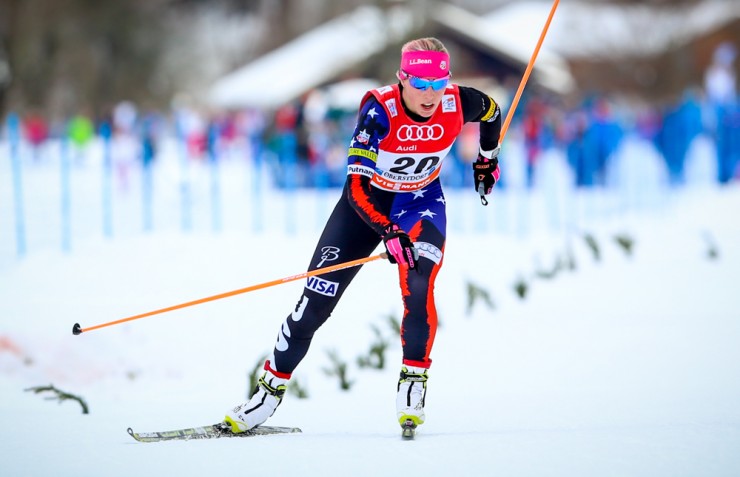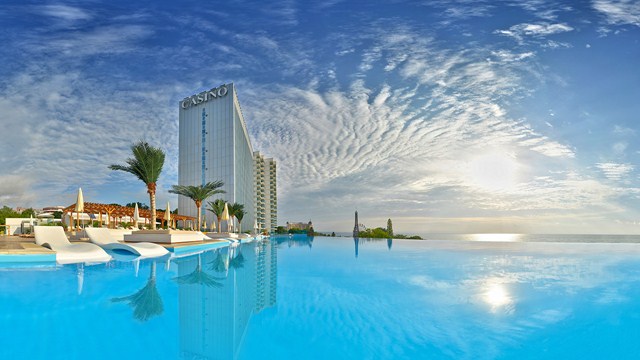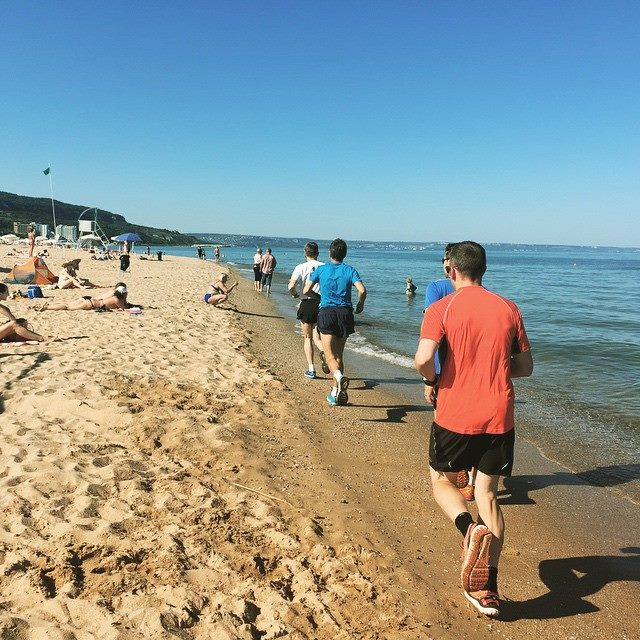
The 2016 edition of the FIS Calendar Conference took place in Varna, Bulgaria from June 2 to 6. At the conference, Kikkan Randall performed her duties as the Athletes’ Committee Chair and FIS Athlete Representative on the Cross Country Committee. Tackling issues from yellow card procedure to National Team inequality, Randall helped present athletes’ concerns and shape FIS policy throughout the five-day conference. After a two year term as the Athletes’ Committee Chair, Randall was reelected and will serve alongside Norway’s Pål Golberg in the next term.
FasterSkier talked with Randall about her recent trip, the new procedures, and the issues that are most important to World Cup athletes in the coming season. This interview was condensed and edited for clarity
FasterSkier: How was your time in Bulgaria?
Kikkan Randall: It was really funny for me because I had just left the training camp with the National Team in Park City. I was just in a really good training rhythm and then I flew halfway across the world and was on the beach for three days. It was a bit of a shift but I feel like it was really productive.
I did an athletes’ survey before we came so I had a clear idea of what some of the key issues would be from the athletes’ side, and some of the big topics on the agenda. I made sure I had a good presentation from the athletes. I was able to give that presentation and a lot of those points were integrated into the discussion and it felt like a lot of those points were really considered. Ultimately the decisions that were made were really good for the sport and things that the athletes will support.
It was fun to come together with all of the ski family and not only talk about how to make the sport better in the coming season, but make sure that our sport stays strong over the next five to ten years.
FS: What were some questions you asked your fellow competitors in the survey and what were their responses?

KR: One big topic this year was the prevalence of double-poling and the fact that the guys were double-poling a distance race for the first time. [There was] also the problem of technique infractions in classic sprints. I asked a few questions and wanted to see if this was something that athletes thought was a normal evolution of sport or was this something that needed to be corrected. I think that athletes felt like this was the evolution of the sport but that we should make sure we have rules in place and make sure that the race is made as fair as possible.
We talked about a few different ways to deal with technique infractions. In the past the jury the would give a yellow card, which is like a written warning, but they would have to call an athlete in, do a hearing, explain what happened, and possibly use video evidence. When you’re talking about a sprint day where things are moving really fast, that just clogs up the system. We felt comfortable with a new rule for the jury to issue a yellow card without a hearing as long as there is more than one jury member concurring. I think that’s going to be good because once you have a yellow card, if you then have another technique infraction it’s an automatic disqualification.
[The rules] are just trying to ensure that the athletes understand that technique fractions are serious. We also worked on some rules to make sure that classic technique is more defined.
FS: Were there any other topics?
KR: Another thing that came up had to do with tours and the number of bonus seconds awarded for sprint competitions. [FIS] was toying with the idea of reducing the sprint bonus to 30 seconds per sprint, but I explained that going through four rounds of a sprint is quite taxing and the athletes should get credit for all their work. In the scheme of the overall tour sprinters may have the advantage on sprint day and a distance skier may have the advantage on a distance day, and you really have to try and keep that as equal as possible. That feedback was received and they decided to keep the 60-second bonus. I think the athletes will be happy about that.

And then we talked about course conditions, and what to do when the course is soft. Should they always try to make hard conditions? or is it just the nature of the sport? The athletes felt like organizers have to do as much as possible to keep the course in shape and keep the conditions as firm as possible. That played into some decisions surrounding course access from the team side and the use of salting.
That also factored into our discussion on the new interval start procedure. That’s going to have the top-15 seeded athletes a little bit higher up in the starting order, and give the coaches a chance to actually select which spots in the seed group their athletes will start.
FS: What was the consensus on last year’s new sprint heat selection procedure trial?
KR: That was probably the third major point on the athletes’ survey. We expected that there would be a more negative response to it. As an athlete I can appreciate that a sprint day is already long and complicated enough and now you throw in the tactic of ‘what sprint heat do I pick?’ and it eats into recovery time.
“We recognize that the current trend we’re on is dangerous for the sport. We have to get creative and help some of the smaller and medium sized nations catch up in terms of the ‘arms race.’ When you have all these talented athletes who are training so hard it can come down to some of these smaller things.” – Kikkan Randall on income and resource inequality between national teams.
Actually the athletes were about 50-50. When we discussed that in the World Cup committee, since there wasn’t an overwhelming negative reaction, it was decided that we would continue to test this procedure to test over the whole of next season so we can continue to test whether it is a good thing or bad thing. At the end of next spring we’ll evaluate after a full season of testing.
FS: Was there an issue you hoped to tackle that didn’t get discussed?
KR: I felt like all the major points that I saw from talking to athletes and from the surveys were definitely addressed. One of the big topics that we talked about that we didn’t come up with a resolution for was the fact that there seems to be an income and resource inequality amongst the teams. It is really unhealthy for the sport long term. If it continues with just a few teams at the top our sport could be in jeopardy in a few years.
We talked about strategies for us to equalize resources a little bit and maybe share some of the income in the sport. There was one proposal that changed the distribution of the red group pay list that would take a few places from the biggest teams like Norway and give the chance to have some of the smaller nation’s athletes travel paid for, which in turn frees up the money for more wax support.
We recognize that the current trend we’re on is dangerous for the sport. We have to get creative and help some of the smaller and medium sized nations catch up in terms of the ‘arms race.’ When you have all these talented athletes who are training so hard it can come down to some of these smaller things.
Everyone was tasked to be creative over the summer and there are some working groups. Hopefully we’ll see some more progress on that in the fall and come up with some solutions that can get some more nations back on the podium.
***
(Click here for a condensed list of cross country decisions at the FIS Calendar Conference)
Lander Karath
Lander Karath is FasterSkier's Associate Editor from Bozeman, Montana and a Bridger Ski Foundation alumnus. Between his studies at Middlebury College in Vermont, he is an outdoor enthusiast and a political junkie.



